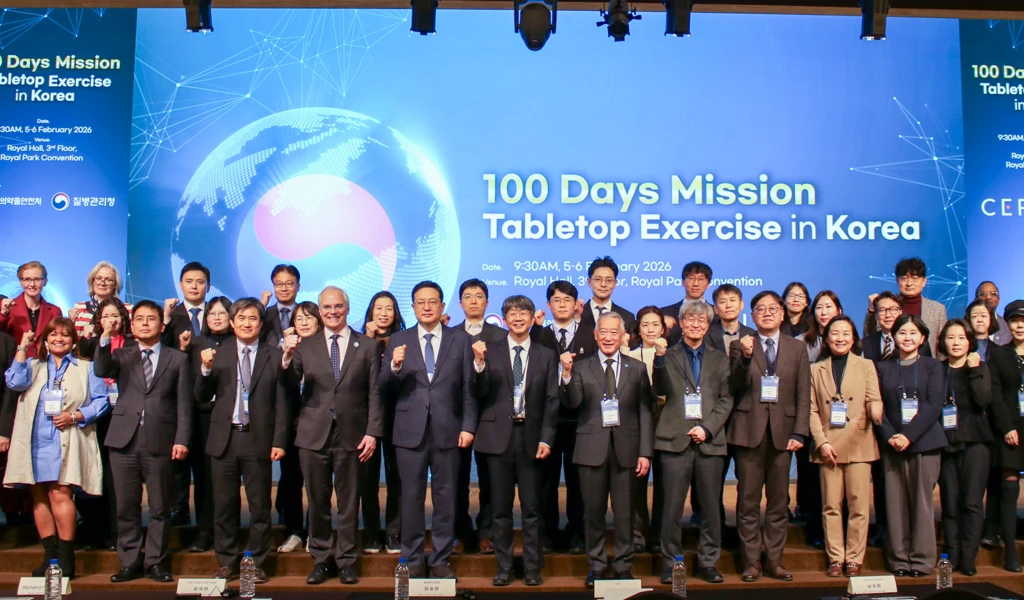Scientists explore how chrysalis-based ‘living bioreactors’ could accelerate new vaccine production
.webp)
17 Jan 2024; OSLO, Norway; MADRID, Spain: Scientists in Spain are to investigate whether moth chrysalises infected with an insect virus known as a baculovirus could act as ‘living bioreactors’ in a new rapid vaccine production technique to help protect people faster from pandemic threats.
In a project funded with a CEPI award of up to $3.14 million, researchers at Algenex, a Spanish biotech company, will further develop their chrysalis-based baculovirus vaccine platform technology, known as CrisBio®. The aim of the project is to conduct a pre-clinical proof of concept study for a vaccine against influenza, and to demonstrate CrisBio’s potential application for rapid and large-scale human vaccine production.
By enabling swift scalability and early large-scale production of viral antigens needed for vaccines, Algenex’s CrisBio® technology could bypass the need for smaller, iterative bioreaction processes and regulations, potentially expediting vaccine production timelines. The CEPI-Algenex partnership supports the 100 Days Mission – a goal embraced by leaders of the G7 and G20 to reduce new vaccine development timelines to 100 Days in response to a potential pandemic disease threat.
“With new and re-emerging infectious diseases posing continual threats, the need for swift access to vaccines is critical to protecting vulnerable populations worldwide,” said Ingrid Kromann, CEPI’s Acting Executive Director, Manufacturing and Supply Chain “This new partnership aims to leverage Algenex’s CrisBio® technology as a prelude to rapid vaccine manufacturing, helping to enable a faster and more equitable response to a future epidemic or pandemic threat.”
Meeting the need for speed
CEPI has identified that optimising and using innovative technologies in the manufacturing processes for rapid production and scaling up of vaccines is a critical enabler of the 100 Days Mission. To that end, CEPI launched the Vaccine Manufacturability Focused on Speed Call for Proposals in May 2023. The $3.14 million funding for Algenex’s CrisBio® work is the second to be awarded under that call.
Already used in some types of animal vaccines, the CrisBio® technology works by modifying a baculovirus—an insect virus that is harmless to people and animals—with genetic instructions to produce a viral antigen of a given virus. Known as a baculovirus expression vector, this is then inserted into a chrysalis reared under special conditions in a laboratory, which causes the insect cells to quickly generate large quantities of viral antigens at a far faster rate than existing bioreactor technologies can. This potential timesaving would mean vaccines could be manufactured and distributed more quickly.
As well as its potential to accelerate vaccine production, Algenex’s technology could offer other benefits, including faster turnaround times, scalable production as demand increases, and lower production costs – making the technology accessible for lower and middle-income countries.
José Escribano, founder and General Manager of Algenex, emphasized the significance of expanding the application of CrisBio® technology into human health. Escribano stated, “This extension allows us to fully unlock the potential of our platform, enabling the development of the next generation of globally accessible human vaccines. Collaborating with CEPI further validates Algenex’s technology, previously acknowledged by EMA for veterinary vaccine production. In the intricate landscape of vaccine manufacturing, CrisBio® offers substantial advantages over existing methods in both human and animal health by simplifying manufacturing procedures.”
Equitable access to vaccines
Enabling global equitable access to vaccines is central to CEPI’s work and at the heart of the 100 Days Mission. Innovations that accelerate the speed and scaling up of vaccine manufacturing will make a vital contribution to access when facing a future novel infectious disease by reducing the period during which vaccines against new pathogens are in short supply, thereby significantly increasing the prospects for more equitable distribution.
CEPI and Algenex are committed to enabling equitable access to the outputs of this CEPI-supported programme, in line with CEPI’s Equitable Access Policy. This ultimately includes commitment to vaccines being available first to populations at risk when and where they are needed at an affordable price should a related vaccine be developed further using CEPI funding. Project results, including data generated as part of this project, will be published open access for the benefit of the global scientific community.
—ENDS—
Notes to Editors
About CEPI
CEPI is an innovative partnership between public, private, philanthropic, and civil organisations, launched at Davos in 2017. Its mission is to accelerate the development of vaccines and other biologic countermeasures against epidemic and pandemic threats so they can be accessible to all people in need.
CEPI has supported the development of over 30 vaccine candidates against its priority pathogens—Chikungunya virus, Ebola Virus Disease, Lassa virus, Middle East Respiratory Syndrome coronavirus, Nipah virus, Rift Valley Fever virus and SARS-CoV-2—and is a leading funder of research into broadly protective coronavirus vaccines, which could protect against future variants of COVID-19 as well as other coronaviruses with epidemic and pandemic potential. The organisation has also invested in the development of rapid response platforms to develop vaccines against Disease X (the threat of an unknown virus).
CEPI has overseen a number of scientific breakthroughs, including the first Phase 3 trial of a Chikungunya vaccine and the advancement of the first ever Nipah and Lassa vaccines into Phase 1 trials. The organisation played a central role in the global response to COVID-19, supporting the development of one of the world’s largest portfolios of vaccines against SARS-CoV-2, seven of which have been approved for domestic or global use. It also co-led COVAX, the global initiative to deliver fair and equitable access to COVID-19 vaccines, which has delivered approximately 2 billion doses of vaccine to 146 countries around the world.
CEPI’s five-year plan for 2022-2026 aims to dramatically reduce or even eliminate the future risk of pandemics and epidemics. Central to the plan is CEPI’s goal to compress the time taken to develop safe, effective, globally accessible vaccines against new threats to just 100 days. Achieving this ‘100 Days Mission’, which has been embraced by the G7 and G20, would give the world a fighting chance of containing a future outbreak before it can spread to become a global pandemic.
Visit our news page for the latest updates. Follow us via @CEPIvaccines, @DrRHatchett, LinkedIn, and Facebook.
About Algenex
Algenex, a biotech company, specializes in revolutionary baculovirus-based technologies for generating recombinant biologics. Their two platforms, TopBac® and CrisBio®, utilize baculovirus expression vector systems, showcasing their ability to revolutionize recombinant protein production. These systems provide unparalleled scalability, production flexibility, simplicity, and versatility while remaining exceptionally cost-efficient. Algenex’s technology is applicable across a broad spectrum of commercial product categories in both human and animal health.
Algenex has successfully collaborated with public and private partners to produce over 200 molecules, including VLPs, monomeric vaccines, single-domain antibodies, hormones, enzymes, growth factors, and diagnostic reagents. The company was recently acquired by the founders of Insud Pharma.
For further information, please visit http://www.algenex.com.


.webp)
